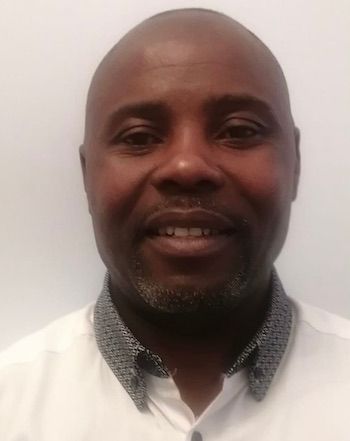Isaiha Mongombe Mombilo

Summary: Isaiha Mongombe Mombilo, a Congolese immigrant, stands for the rights of vulnerable members of his community through information dissemination, advocacy, and social support in South Africa. In 2012 he founded the Congolese Civil Society, an organisation that aims to facilitate the integration of Congolese immigrants into their host communities in South Africa. Mombilo left his cellphone business for a full-time commitment to activism, but in the process lost a source of income due to full-time commitment to the cause of humanity.
Profile: A preacher by profession, Mombilo became an activist upon realising that humanity is under threat, especially vulnerable groups (such as immigrants), living in an unjust social system that Mombilo sees as reigning in South Africa today. He took the decision to challenge a system that excludes others, and in doing so brings hope to thousands of disadvantaged people in his community.
Fleeing from war in the Democratic Republic of Congo, and expecting to find peace in South Africa, Mombilo was surprised when in 2008, some locals launched a sustained attack on international immigrants of African origin, including Congolese.
‘’Coming from a country where many civilians are killed daily and live in fear of an oppressive regime, South Africa represented, for many of us, an island of peace and democracy, a country of Ubuntu that should welcome those who had stood for its liberation during apartheid,’’ said Mombilo during a workshop organised by ALPS Resilience, an organisation helping migrants and local communities in Africa overcome the challenges of forced migration by strengthening community resilience, in Cape Town (Ubuntu is a Nguni Bantu word which means “humanity.)”
Founded after the deadly 2008 xenophobic violence, the Congolese Civil Society in South Africa (the organization founded and led by Mombilo) realised the need to facilitate social cohesion and integration of immigrants in the host community. The group quickly began a program of providing migrants, refugees and asylum seekers with orientation, counselling and other assistance, collecting data about the community in order to raise awareness, assisting entrepreneurs in the community and providing a platform for youth.
When in 2022 another wave of xenophobic violence broke out in South Africa, Mombilo, with the support of other immigrant organisations, lead an anti-xenophobia campaign aimed at influencing policy makers to improve the life of refugees in South Africa. It included organising a protest, handing over a petition to the Parliamentary Portfolio Committee of Home Affairs and creating both a march for human rights and a” Refugee Day” celebration to combat xenophobia in South Africa,
Through his organisation, Mombilo also helps asylum seekers and refugees to apply for the renewal of their documents online free of charge. Since the outbreak of the deadly coronavirus in 2020 in South Africa, the Department of Home Affairs has offered a directive for asylum seekers and refugees to renew their papers online. But many of them have no knowledge of how to use an online system and/or lack the internet tools to do so.
A persuasive speaker, Mombilo leads workshops to educate both immigrants and the host community on their responsibility and rights with regards to international migration. “This,” Mombilo said, “is meant to reduce the level of xenophobia in South Africa by connecting local and foreign nationals living in South Africa.’’
Mombilo is convinced that his (and others’) activism has made an impact.
‘’We had a huge influence in getting the Home Affairs Ministry to create a centralized and accurate information system, we helped in the successful implementation of the online application system for permits renewal, and we educated the Congolese community to promote the ideals of unification and transformed society,’’said Mombilo.
Mombilo has also engaged with CSP-Conlutas in Brazil to organise international solidarity protest actions against the killings of refugees and immigrants worldwide.
However, Mombilo’s work has not been easy.
He had to close his cellphone business in order to pursue full time humanitarian work. Some of his relatives mock him for his efforts. “They often say,” he relates, “that I will die poor if I continue with what I am doing with my humanitarian work.” However, with a vision of a transformed society, Mombilo is determined to continue working for his community and to leave a positive legacy. “I don't consider quitting because I have a vision of a transformed society and I want to leave a legacy for the next generation,” he says.
